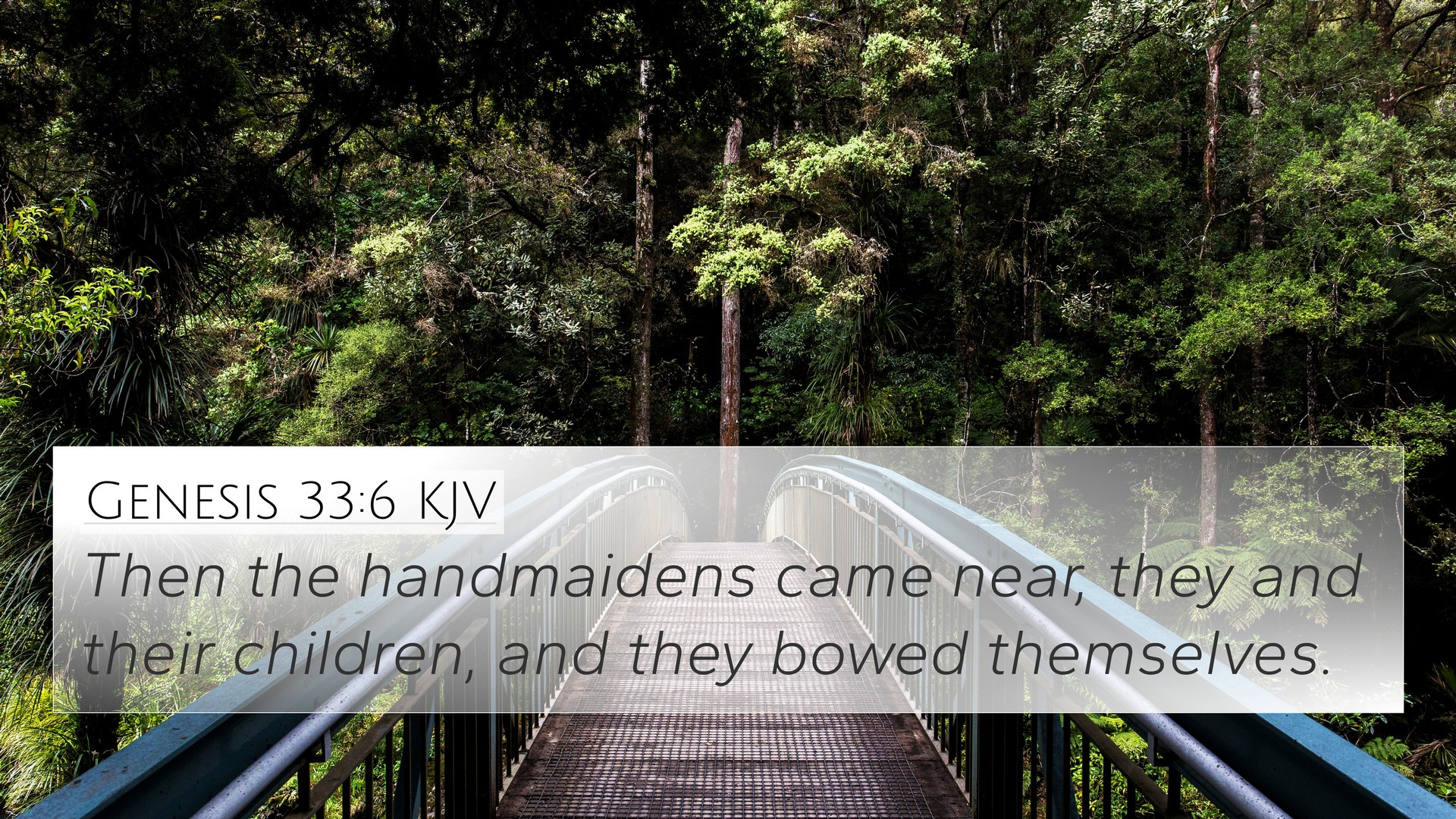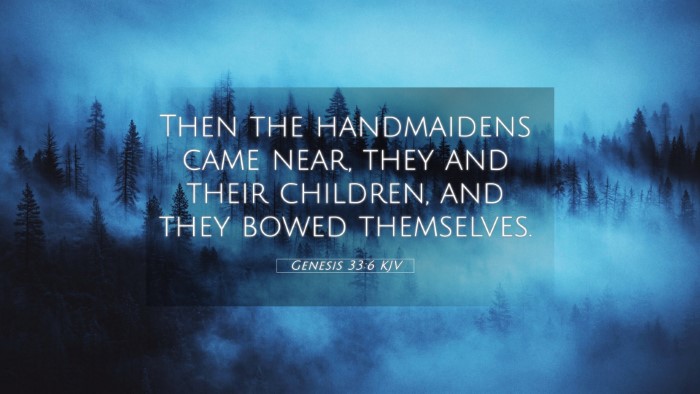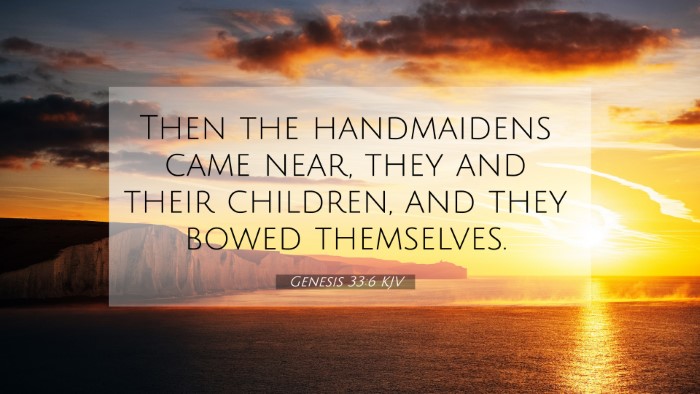Understanding Genesis 33:6
Genesis 33:6 states:
"Then the maidens came near, they and their children, and they bowed themselves."
Summary of Meaning
This passage occurs in the context of Jacob's long-awaited reunion with his brother Esau. The verse highlights the interactions between Jacob's family and Esau, revealing the themes of reconciliation, humility, and respect. The act of bowing signifies submission and honor, underlining the significance of humility in personal relationships.
Insights from Public Domain Commentaries
Gathered insights from various commentaries help elucidate the meanings embedded within this verse:
- Matthew Henry: Henry emphasizes the importance of familial relationships in this passage, indicating that the bowing of the maidens and their children represents their acknowledgment of Esau's position and a desire for peace. The act embodies the spirit of reconciliation that Jacob sought after years of estrangement.
- Albert Barnes: Barnes draws attention to the structure and customs observed during the reunion. He notes that Jacob’s family, through their actions, displayed a deep veneration towards Esau, which illustrates the cultural norms of honor and respect that were crucial in their society.
- Adam Clarke: Clarke discusses the implications of the maidens’ actions. He interprets their approach as an expression of respect and a strategic move to soften Esau’s heart, showcasing the underlying theme of diplomatic efforts to restore broken relationships.
Thematic Connections and Cross-References
This verse can be linked to several broader themes and verses throughout the Bible that explore reconciliation, humility, and family dynamics:
- Genesis 32:21: A previous moment where Jacob appeased Esau with gifts and bowed himself, setting the stage for the eventual reunion.
- Proverbs 16:7: "When a man's ways please the Lord, he maketh even his enemies to be at peace with him," relating to Jacob's desire for peace with Esau.
- Matthew 5:23-24: Jesus speaks about reconciling with your brother before offering your gift, echoing the principle of prioritizing relational peace.
- Luke 14:11: "For whosoever exalteth himself shall be abased; and he that humbleth himself shall be exalted," which reflects the value of humility displayed by Jacob's family.
- Romans 12:18: "If it be possible, as much as lieth in you, live peaceably with all men," further supporting the theme of reconciliation central to this narrative.
- 2 Corinthians 5:18: The ministry of reconciliation that believers are called to, paralleling Jacob's journey towards reconciling with Esau.
- Ephesians 4:32: "And be ye kind one to another, tenderhearted, forgiving one another, even as God for Christ's sake hath forgiven you," which ties into the attitudes present in Jacob’s reunion.
Inter-Biblical Dialogue and Comparative Analysis
Through cross-referencing Biblical texts, one can uncover a complex network of connections that enrich the understanding of Genesis 33:6. These connections promote a deeper comprehension of scriptural narratives and highlight recurrent themes of humility and reconciliation found throughout the Bible.
Conclusion
The interactions in Genesis 33:6 serve as both a historical account and a moral lesson on humility and reconciliation. These lessons resonate through various parts of Scripture, and when studied in conjunction with their inter-Biblical dialogue, they offer profound insights into the nature of human relationships and God’s desire for peace among His people.


